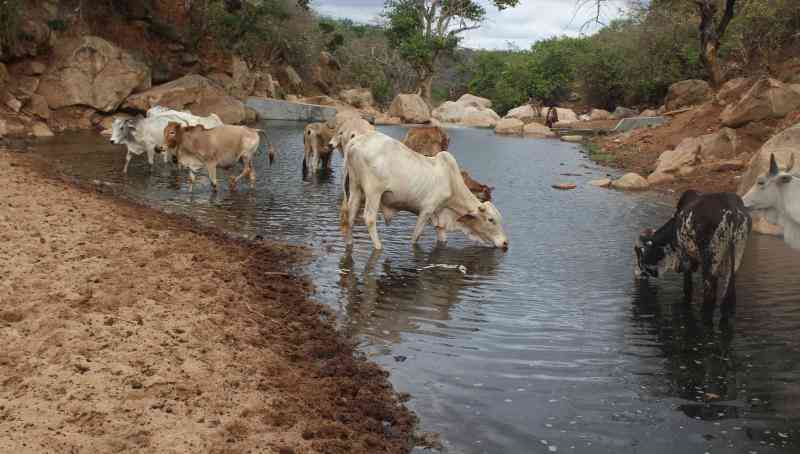×
The Standard e-Paper
Home To Bold Columnists

Animals drink from a pool at one of the newly built county government sand dams across River Mutwaewa in Mwingi West. The sand dam is already filled up with water. [Philip Muasya, Standard]
With many parts of Kitui County prone to water insecurity owing to prolonged drought periods that run from April through to October every year, an ingenious water conservation technology has proven to be a permanent solution for the local residents.